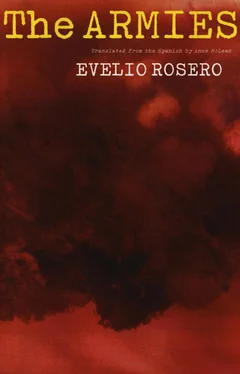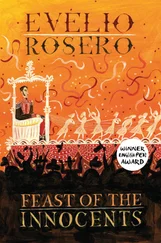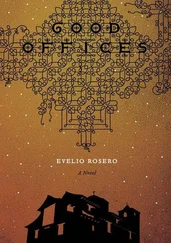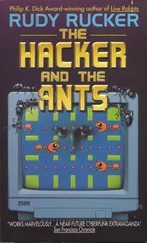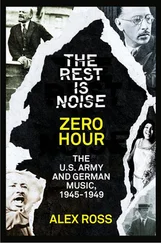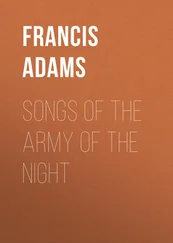“To look for Otilia,” I said.
“She must be at home by now, waiting for you. Do not put yourself at risk, profesor . Come in right now, or I’ll close the door. Listen to the shooting.”
“What if Otilia is at the school?”
“Don’t be stubborn.”
Again I deplored my memory: I remembered that Rey told Otilia that I was at the Brazilian’s house. So that’s where I went, while I heard Señora Blanca’s shouts, scolding me.
“You’re going to get yourself killed,” she yelled.
I saw when I arrived that the gate to Geraldina’s house was closed, with a lock and chain, as was the door. The door to my house too: fastened with the latch, from the inside; I began hammering on the door, in vain, shouting to be let in. I was struck by the thought that if Otilia was inside she would already have opened the door, and I preferred not to think any further. It was possible that she simply did not hear me. Was Sultana’s daughter still there, or had she gone?
I hear sobs, inside.
“It’s me, open up, hurry.”
No one answers.
On the corner, not far from where I am — my forehead pressed against the door, hands raised, resting on the wood — another group of soldiers appears. They are not soldiers, I discover, tilting my head slightly. There are seven, or ten of them, in camouflage uniforms, but they’re wearing jungle boots, they are guerrillas. They have seen me as well leaning against the door, and they know I am looking at them. They are coming toward me, I think, and then a shot from the opposite direction shakes them and captures their full attention: they run that way, crouched down, pointing their rifles, but the last of them stops for a second and during that second turns to look at me as if he wanted to say something or as if he recognized me and was about to ask if I were me, but he has not said a word, he does not speak, is he going to speak to me? I make out the sallow, young face, as if through fog, the eyes two black ignited coals; his hand goes to his belt and then he tosses, gently, in a curve, something that looks like a stone. A grenade, my God, I scream to myself, am I going to die? We both watch in suspense the trajectory of the grenade, which falls, bounces once and rolls like any other stone three or four meters from my house, without exploding, exactly in between Geraldina’s door and mine, at the edge of the pavement.
The boy looks at it for a second, ecstatic, and speaks at last: I hear his voice filling the street like a celebration.
“Hey, it’s your lucky day, Granddad, buy yourself a lottery ticket.”
Naively I think that I should respond in some way, and I am about to say: “Yes, that was lucky, wasn’t it?” but he has already gone.
Then my front door opens. Behind it is Sultana’s daughter, crying.
“What about my mom?” she asks. “Should I go and look for my mom?”
“Not yet,” I say.
I go in and close the door. I am still thinking about the grenade that did not explode. It is possible that it will explode now, that it will destroy the front of the house, or the whole house. I run inside, out into the garden. From there too you can hear gunfire, explosions. I walk back up the hallway, followed everywhere by the crying girl, and go into my room; I see myself leaning down to look under the bed, I go back out to the garden, look in the kitchen, in the room that used to belong to our daughter, I go into the bathroom.
“And Otilia?” I ask. “Has Otilia been here?”
No, she says, and repeats no, shaking her head, crying the whole time.
We have been going from one side of the house to the other, depending on the blasts, fleeing from wherever we hear them, engulfed in their frenzy; we end up behind the living room window, where we catch astonished, fitful glimpses of the fighting troops, without distinguishing which army they belong to, the faces as cruel as any; we are aware of them going past, ducked down, slowly or at full speed, shouting or dumb with desperation, and always the sound of boots, panting, curses. A louder bang shakes us, from inside the garden; the octagonal living-room clock — its face of painted glass, an Alka-Seltzer promotion that Otilia bought in Popayán — has split into a thousand lines, the hour stopped forever at five o’clock on the dot. I run down the hallway to the back door, not caring about the danger; what difference can it make when it seems the war is going on in my own house. I find the fountain — of polished sandstone — blown apart; on the ground shiny with water the orange fish still quiver; what to do? Pick them up? What will Otilia think — I wonder foolishly — when she finds this mess? I gather up the fish one at a time and throw them into the sky, far away, so Otilia will not see her fish dead.
At the back, the wall that separates my property from the Brazilian’s smokes where it has been blasted in half: there is a breach the size of two men, there are pieces of the ladder scattered all over; flowers lie strewn about, their clay pots pulverized; half the trunk of one of the orange trees, split lengthwise, still trembles and vibrates like a harp, coming apart inch by inch; there are piles of smashed oranges, sprinkled like a strange multitude of yellow drops all over the garden. And that is when I discover, unable to believe my eyes, the dark silhouettes of four or six soldiers who jog along balancing on the top of the wall. Soldiers? I ask myself. Yes, the same. They jump into my garden, pointing their rifles at me; I smell the sweat, their breath, one of them asks me where the door to the house is; I point out the route and run behind them down the hall. We hear Cristina’s scream in the living room; she holds her hands over her face, thinks they are going to kill her.
One of the soldiers, the last one — the one closest to us — seems to recognize her. I see that he looks at her with excessive attention.
“Hide under a table,” he tells her, “get down on the floor,” and carries on advancing behind the others.
I know I have to tell them something, warn them of something, ask them about something, but I do not remember anything. So we go to the door, which they open stealthily. They lean out, peer this way and that and burst onto the street.
“Close that door,” they shout at me.
I close it, what was it I had to say to them? The grenade, I remember, but another tremendous blast — again from the direction of the garden — distracts me.
“Didn’t you hear?” I say to Cristina. “Hide.”
“Where?” she asks with a shriek.
“Wherever,” I shout back. “Under the ground.”
The smoke spreads from the garden, it is a long asphyxiating cloud that streams into the hallway. I return through its folds to the garden; I make out the edge of the wall, examine it: it is very possible that someone is following the soldiers, and in their place will find me; it does not matter, it is better to die at home than in the street. I remember Otilia and a sort of fear and rage inspire me to step right into the breach in the wall, as if that would protect me. The smoke is coming from another of the trees, burnt and split from the top; further down, on the very white pulp of the trunk stripped of its bark, I see a bloodstain, and, on top of the roots, pierced with splinters, the corpse of one of the cats. I clutch my head, everything spins around me, and in the middle of it all Geraldina’s house shines in front of me, with no wall: this hole is a huge irony, through which I can take in Geraldina’s garden in its entirety, the terrace, the round pool; and not just look, I could pass through to the other side; what am I thinking? Of Geraldina undressed, oh God. Is Otilia in there? I do not see anyone on the other side, I cannot distinguish anything. There are shots coming from the street, with increasing intervals between them. Far away, in a vortex of screams, the center of which is the white point of the church, curls of smoke can be seen, on all sides. I enter my neighbor’s garden, which has not suffered as much damage as mine — except for the absence of the macaws, their laughter, their strolls, although I soon find them, stiff, floating in the pool. I cross the terrace and proceed inside.
Читать дальше
